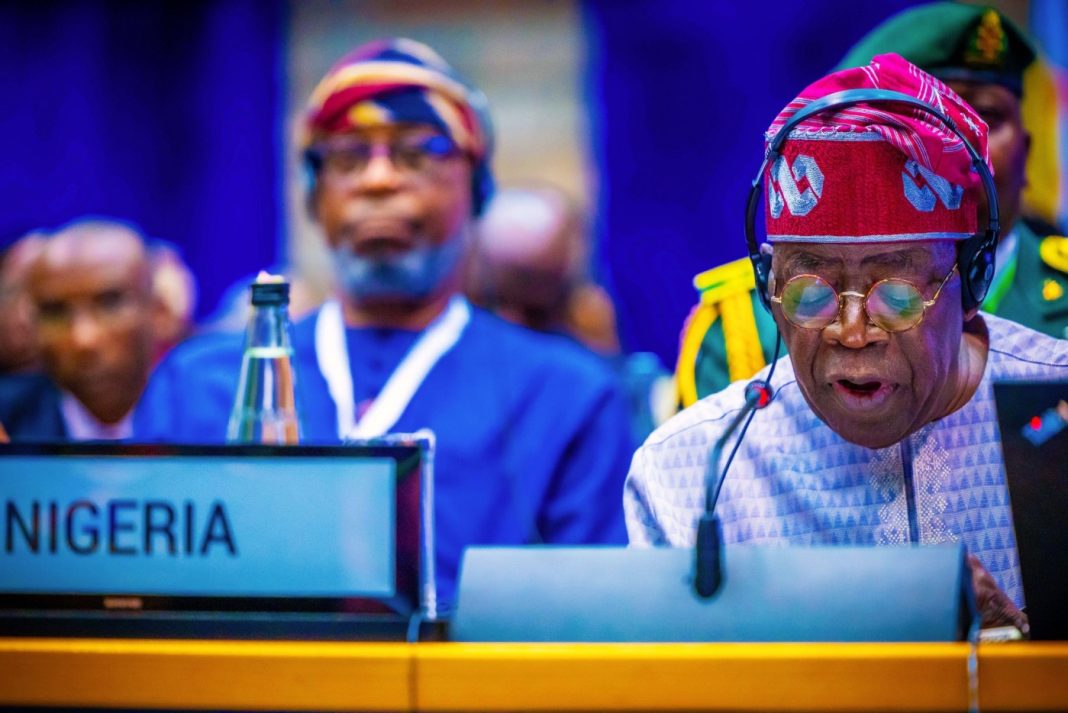ABUJA, Nigeria — The Manufacturers Association of Nigeria, MAN, has raised alarms over the spiraling N77 trillion debt, which they believe could impede the economic ambitions of President Tinubu’s administration.
The manufacturing sector, already beleaguered by Nigeria’s surging debt, has witnessed a staggering 410% spike in the country’s debt profile over the past eight years.
According to the MAN CEOs’ Confidence Index, MCCI, report for Q1 2023 on Monday, August 21, 2023, the fallout from escalating public debt on manufacturing is profound.
“Rising domestic debt severely curtails private investment within manufacturing, curbing credit availability and escalating lending rates,” the report stated.
The fallout doesn’t end there. As the nation services its external debts in foreign currencies, the demand for such currencies intensifies, thereby depreciating the naira.
This currency depreciation makes importing essential, non-indigenous inputs expensive for manufacturers.
Furthermore, as a greater chunk of foreign exchange is channeled into debt servicing, the persistent forex scarcity, which has long been a thorn in the manufacturing sector, continues unabated.
To elevate revenue for heftier debt repayments, “The Nigerian government is inadvertently creating a hostile business environment by levying high and multifaceted taxes on manufacturers,” the report continued.
According to the association, this aggressive approach to revenue generation deters foreign investment and capital inflow, exacerbating the existing forex crunch.
Contrary to the popular governmental narrative that Nigeria grapples with a revenue issue, MAN emphasized that the country’s debt conundrum is not rooted in revenue inadequacy.
“It’s a fallacy to perceive manufacturing taxes as a panacea to the debt crisis,” the report stated.
Despite the sharp ascent in the country’s debt in recent years, the manufacturing sector is yet to see a noteworthy mitigation in the manifold challenges impinging upon its performance.
Issues like decaying infrastructure, forex scarcity, and naira depreciation persist.
Addressing these challenges, the report highlighted, “Nigeria’s real quandary isn’t merely revenue generation, but the misappropriation and consequent non-reflection of accrued revenues in official records.”
MAN believes that the towering N77 trillion debt is a daunting legacy to inherit, one that will inevitably stymie the prospects of the current administration.
Suggesting a roadmap ahead, MAN proposed a multitude of measures:
- Expand the revenue base by broadening the tax net, capturing more businesses in the informal sector.
- Rigorously enforce the Voluntary Assets and Income Declaration Scheme (VAIDS) via the Federal Inland Revenue Service, FIRS.
- Plug the gaps in the existing tax laws to curtail tax revenue leakage.
- Foster fiscal discipline by trimming the cost of governance and strictly adhering to relevant sections of the Fiscal Responsibility Act and the CBN Act.







